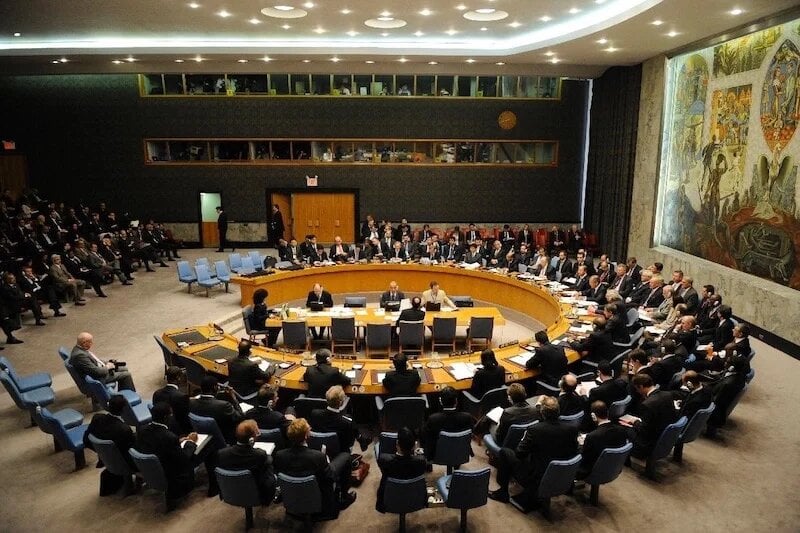The United Nations General Assembly on Thursday elected five new non-permanent members to the Security Council for the 2026–2027 term. Bahrain, the Democratic Republic of the Congo, Liberia, Latvia, and Colombia will assume seats beginning January 1, 2026, replacing outgoing members at the end of 2025, including Algeria.
The election outcome marks a significant diplomatic development for Morocco, particularly with the inclusion of Bahrain, Liberia, and the DRC — all of which have openly supported Morocco’s autonomy plan for the Sahara, a region at the heart of a long-standing territorial dispute.
Support for Moroccan Sovereignty Grows
Bahrain, a key ally of Morocco in regional and international forums, has consistently reaffirmed its support for Morocco’s territorial integrity. In 2020, it was one of the first Arab countries to open a consulate in Laayoune, a symbolic move endorsing Moroccan sovereignty over the Sahara.
The DRC and Liberia have also strengthened their support for Morocco’s position. Both countries have inaugurated consulates in Moroccan-administered parts of the disputed region and participated in international conferences backing Morocco’s autonomy initiative as a realistic solution under Moroccan sovereignty.
Expert Analysis: A Diplomatic Shift
Said Bouchakouk, a researcher on development and geopolitical affairs, told AR that the latest UN vote reflects a “broadening international consensus” around Morocco’s autonomy plan as a pragmatic basis for resolving the Sahara dispute.
“This vote consolidates the growing diplomatic momentum Morocco has achieved under King Mohammed VI’s leadership, particularly in countering separatist narratives that no longer resonate with the international community,” Bouchakouk said. He noted that major world powers, including the United States, France, and the United Kingdom, now openly support Morocco’s sovereignty claims.
Bouchakouk also suggested that the evolving international posture may lead to a shift within the UN framework from Chapter VI to Chapter VII of the UN Charter — a move that could empower the Security Council to enforce a resolution endorsing autonomy as a final settlement.
Algeria’s Diminishing Influence
Algeria, whose non-permanent membership on the Security Council ends in 2025, appears to have failed to capitalize on its seat to promote its backing of the separatist Polisario Front. Analysts say the North African country’s attempts to influence Council outcomes have fallen flat, especially as more African and Arab nations line up behind Morocco.
Abdelfattah El Belamchi, director of the Moroccan Center for Parallel Diplomacy and Dialogue of Civilizations, emphasized the growing gap between Morocco’s diplomatic advances and Algeria’s stagnation.
“Despite Algeria’s efforts, it failed to push through any proposals favorable to the separatists during its term. Meanwhile, more countries have opened consulates in Moroccan-administered areas, reaffirming their support for autonomy,” El Belamchi said.
Strategic and Legal Implications
El Belamchi added that major permanent members of the Security Council are increasingly vocal in supporting Morocco’s sovereignty, suggesting that the time has come for these positions to be reflected in binding UN resolutions.
He also highlighted the Moroccan diplomacy’s success in integrating economic and developmental components into its foreign policy — a move that has enhanced the credibility of its autonomy proposal and fostered strategic international partnerships.
“This is no longer a purely national vision. The Moroccan initiative is now a credible international framework for resolving the conflict,” El Belamchi said. He urged the international community to recognize and act on this momentum to facilitate a political settlement that ensures regional stability and respects the principle of self-determination.
The post
UN elects five new non-permanent members to Security Council, signaling diplomatic gains for Morocco
appeared first on
English – Morocco News
.







